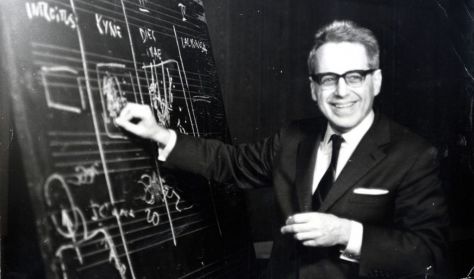The knowledge and influence of Ferenc Farkas and Sándor Veress were particularly significant for Ligeti. He greeted Farkas – with whom he began his composition studies in Cluj-Napoca and completed them in Budapest – on the occasion of his 90th birthday in 1995 with these lines:
“What I have learned from you is a kind of ethics of craftsmanship: one does not write anything down no matter how, but keeps on correcting until his brain is able to work. I learned consistency and accuracy from you [...] and also that one should refrain from all pomposity and pretentiousness. [...] With a red pencil you scribbled over my exercises of harmonic theory and my little stylistic exercises: your red pencil helped me catch a glimpse of a system of things that cannot be put into words.”
The Budapest Strings selected works for the concert programme that show how Ligeti, through his masters, was able to explore many different directions of 20th-century Hungarian composition. And although within a few years Ligeti had left the world of his teachers behind, building his own universe, he remembered their high standards of craftsmanship and exemplary characteristics with respect, gratitude and affection for the rest of his life.
Program:
Pál Járdányi: Sinfonietta
Pál Kadosa: Symphony No. 4
Endre Szervánszky: Serenade for Strings
Ferenc Farkas: Old Hungarian Dances
Sándor Veress: Four Transylvanian Dances
György Ligeti: Old Hungarian Ballroom Dances
Featuring:
Budapest Strings
Concertmaster: János Pilz
Artistic director: Károly Botvay




